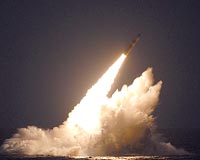| . |  |
. |
Caracas, Venezuela (UPI) Oct 18, 2010 Russia's agreement to build a nuclear power station and a research reactor in Venezuela has handed the Obama administration and the International Atomic Energy Agency with a headache that won't go away easily. The problem isn't so much the introduction of nuclear energy to the Latin American country, which has growing electricity needs, but the unpredictable policies of populist President Hugo Chavez. U.S. State Department spokesman Philip Crowley said in Washington the United States hoped both Russia and Venezuela would act responsibly and adhere to IAEA rules. Comparisons with the Iran nuclear row figured in Crowley's briefing with reporters. Any criticism of Chavez is readily equated in Caracas with ill intentions toward Chavez but oil-rich Venezuela this year won dubious distinction as the only major Latin American economy to shrink despite steady income from crude oil exports. Prolonged outages of power and water supplies in 2009 and this year, which exacerbated popular discontent, were partly the result of severe drought but expert evidence cited in the government's own performance reports cited inefficiencies and waste. Poor investment in the energy sector was also blamed for the energy crisis. A stopgap investment program to upgrade the infrastructure at a cost of $192 million was seen by opposition critics as too little too late. The 500 megawatt Russian-built power station could take several years to be ready but Chavez faces elections next year and has seen his congressional majority halved in recent polls. After a deal signed during his ninth visit to Moscow since coming to power in 1999, Chavez announced: "Venezuela is on its way to getting nuclear power. I hardly need to say so but I'll say it anyway: for peaceful purposes, of course." Chavez added, "They'll say that we are going to build atomic bombs. No, we are not ... nothing is going to stop us, we are free, sovereign and independent." Russian President Dmitry Medvedev said, "Our intentions are absolutely pure and open. We want our partner Venezuela to have a full range of energy possibilities." However, the deal follows more than $4 billion of Russian military sales, at least $2.2 billion on flexible credit terms. The deal enabled Russia to transfer Soviet-era military hardware to Venezuela as part of its strategy to stimulate Russian arms industries. Included in the deal are about 100 T-72 tanks, fighter jets and helicopters, short-range missiles and 100,000 Kalashnikov rifles of an earlier make. Opposition critics of Chavez say the arms buying is superfluous to Venezuela's needs. Chavez says Venezuela needs the weapons to defend itself against foreign adversaries among which names Colombia and the United States. Critics say Venezuela could meet most of its energy needs through a better management of its vast hydroelectric resources and several new renewable energy projects. Crowley said, "Any new nuclear program or activity should be conducted in accordance with the highest standards of non-proliferation, safety and security, including IAEA safeguards." He added, "Venezuela and Russia have international obligations and we expect them to meet those obligations."
Share This Article With Planet Earth
Related Links Learn about nuclear weapons doctrine and defense at SpaceWar.com Learn about missile defense at SpaceWar.com All about missiles at SpaceWar.com Learn about the Superpowers of the 21st Century at SpaceWar.com
 France announces defence summit with Britain
France announces defence summit with BritainParis (AFP) Oct 8, 2010 Britain and France will hold a summit on November 2 to discuss joint defence deals, Paris said on Friday, following reports they are negotiating for France to service British nuclear warheads. "On November 2 a Franco-British summit will take place which will principally cover our cooperation in defence and weapons," French Prime Minister Francois Fillon said in a speech at a military academy ... read more |
|
| The content herein, unless otherwise known to be public domain, are Copyright 1995-2010 - SpaceDaily. AFP and UPI Wire Stories are copyright Agence France-Presse and United Press International. ESA Portal Reports are copyright European Space Agency. All NASA sourced material is public domain. Additional copyrights may apply in whole or part to other bona fide parties. Advertising does not imply endorsement,agreement or approval of any opinions, statements or information provided by SpaceDaily on any Web page published or hosted by SpaceDaily. Privacy Statement |